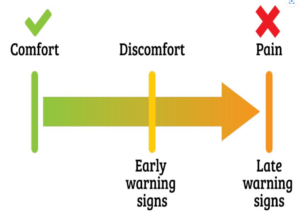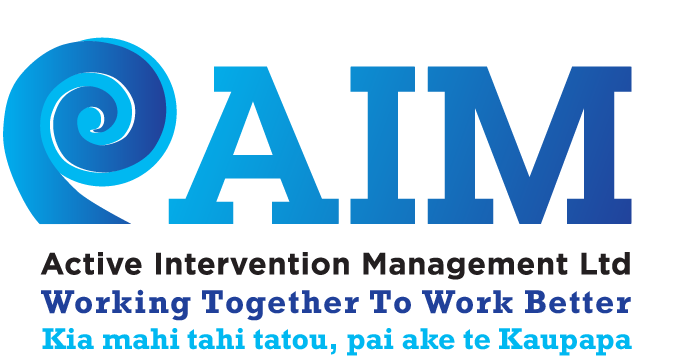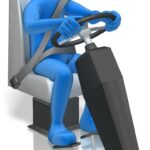This article has been kindly shared by Alison Richmond from Provention and First Move Training.
Provention’s First Move principles teach us how to use our bodies safely and effectively
to avoid physical strain and injury.
These principles apply in all aspects of our lives be it work, home, sport and recreation.
A key foundation of First Move is the Discomfort – Pain Diagram

The basis of the Discomfort – Pain diagram is to
listen to your body and make changes to avoid suffering pain and/or injury
Many of us experience discomfort regularly and ignore it – we tell ourselves it is just ‘part of everyday life’.
Discomfort is your bodies way of telling you it is experiencing strain or overload.
Discomfort does not stop you doing an activity – it is an early warning sign to make you take notice – and ideally make changes.
Common signs of discomfort are:
- Ache/Soreness
- Tightness or muscle tension
- Tingling
- Numbness
- Heaviness
If you ignore these signs you run the risk of this discomfort getting worse and progressing to pain – and often injury. Pain is your bodies late warning sign.
At the pain end of the scale:
- Your activities are reduced
- Due to the pain you may not be able to complete all work or out of work activities
- You may need medication
- For example, pain killers or anti-inflammatories
- You may require treatment from a health provider
- For example, Doctor or Physiotherapist
If you feel any discomfort – don’t just ignore it!
Notice what you are doing and change your technique. For example:
- If you are bending and reaching and notice back ache – It is likely the weight is forward in your toes – change your technique so you are moving with balance and the weight is in your heels.
- If you are using power tools and notice soreness in your elbow and forearm – it is likely you are gripping with your whole hand evenly – change your gripping technique and lead with your pinky finger.
- If you are pushing heavy trolleys and notice shoulder/neck tightness – it is likely your elbows are pointing outwards – change your technique so your shoulders are in the Power Position with elbows pointing down.





